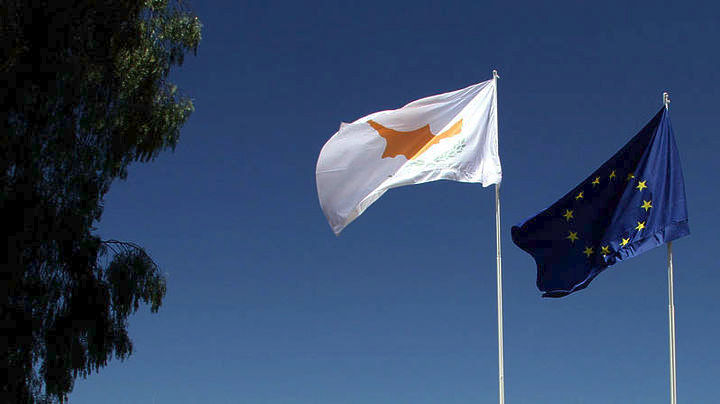Finding a just and viable solution to the Cyprus issue remains a solid pillar of Greek foreign policy

Yesterday?s parliamentary session regarding the outcome of the Conference on Cyprus, which was concluded a few days ago in Crans Montana (Switzerland), showcased that, although negotiations failed because of Turkey?s persistence in retaining intervention rights on Cyprus, the Cyprus issue remains a pillar of Greek foreign policy, a pillar around which a wide coalition has been formed by all political parties.
As the Prime Minister, Alexis Tsipras, stated ?there is wide consensus among all political parties, on the necessity of constantly endeavoring towards reaching a just and viable solution on the Cyprus problem, without guarantees, without an army of occupation on the island and certainly without rights of intervention by third parties on a unified, autonomous, independent Cyprus which is a member-state of the European Union?.
Furthermore, the Greek parliament, in its entirety, strongly supports the negotiating efforts of the Republic of Cyprus, on the people of which lies, ultimately, the responsibility of making the crucial decisions. The Minister for Foreign Affairs, Mr. Nikos Kotzias, emphatically pointed out the ?strong and constant cooperation? with the Cypriot side, a remark that the Leader of the Opposition, Mr. Kyriakos Mitsotakis, fully agreed with, stating that ?it has been our longstanding national approach on the issue, that Cyprus decides, while Greece supports and encourages?.
Greece, within the context of its role and by engaging with its European and international partners, intervenes on substance in order to shape an international environment conducive to supporting the efforts of the Republic of Cyprus. As the Greek Prime Minister noted, ?the Cyprus issue should not be viewed as a dispute between Greece and Turkey. It is a European, an international issue? and it is a significant accomplishment of the Greek diplomacy that, for the first time, both communities and the three guarantor powers met in Switzerland in order discuss the chapter of security and guarantees.
Moreover, it should be noted that all participants in the Conference, excluding Turkey and the Turkish-Cypriot delegation, acknowledged that Cyprus must be allowed to become, once again, a ?normal? State. Knowingly, a State upon which no third country can have ?rights? of intervention, hanging over its sovereignty and independence like a sword of Damocles.
An additional issue on which there is wide consensus among the political forces in Greece, is that of Cyprus? inalienable right to exercise, in a manner and at a time of its choosing, all the rights that emanate from International Law and the Law of the Sea. This position was confirmed not only by the Prime Minister and the Minister for Foreign Affairs, but also by the Leader of the Opposition and the leaders of almost all the political parties who participated in the debate on Cyprus.
Despite the intransigent Turkish stance and Turkey's anachronistic obsession in maintaining troops on the island - which is totally absurd for the further reason that Cyprus is a member state of the European Union - the Prime Minister stressed that the door of the negotiation regarding the Cyprus issue has not been closed. "The just and viable solution of the Cyprus problem, within the framework of the decisions of the United Nations, is and will remain a central issue of the Greek foreign policy, a central matter for a country that is a pillar of peace, stability and security in the wider region. In this context, we are always open to the resumption of talks under the auspices of the United Nations, provided, of course, that all sides would be interested in doing so. And we will continue to move in the same direction: defending our principles in combination with the exercise of a diplomacy that is not based on fears and obsessions of the past, but on constructive proposals and the generation of international support?.
By calling on Turkey to exhibit, at last, a similar role as a factor of stability in the region and to continue its rapprochement with Europe, instead of moving away from European values ??and standards, the Greek Parliament has emphatically confirmed that, as the leader of the Opposition outlined, "in Greece and Cyprus, we are aligned on a solid national stance of responsibility against Turkish violations of International Law and against Ankara's intransigence in Cyprus and the Aegean Sea".
The Prime Minister, on his part, stressed that "our message to Turkey, which was highlighted during the talks on the Cyprus issue, must remain firm, particularly in these difficult moments. We are determined to defend our principles and rights against any threat or illegal claim. At the same time, we are committed to pursuing issues on which we are divided and to building a relationship based on respect of international law and mutual respect".


